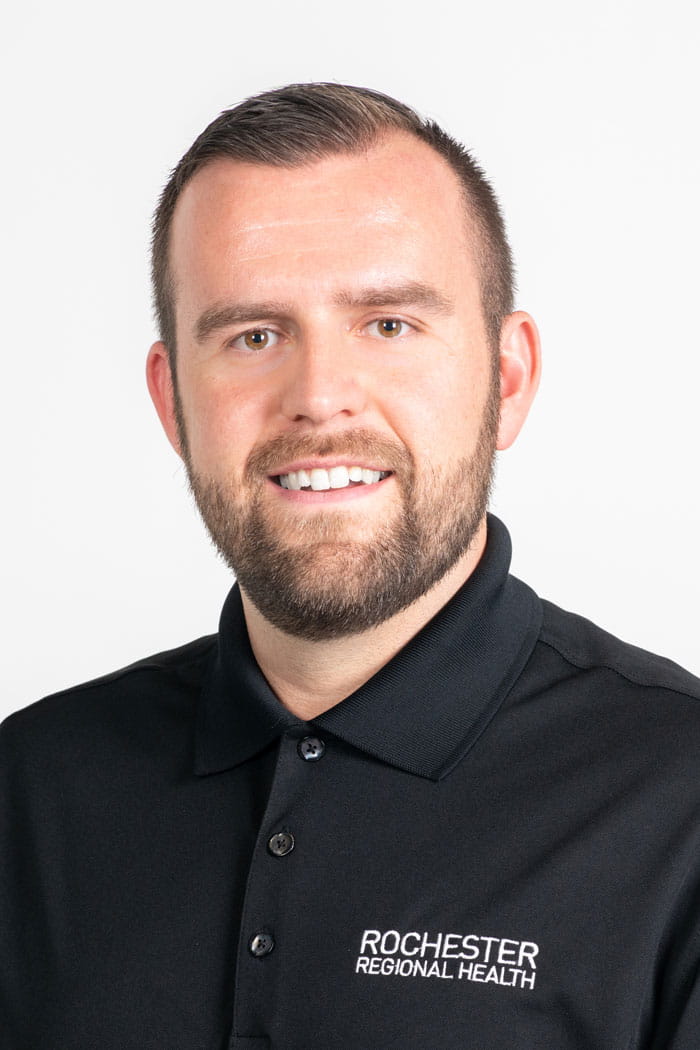
Studies suggest roughly half of U.S. adults take some form of vitamin or supplement to help with their heart health. Dietary supplements are a $55 billion-a-year industry in the U.S., according to CDC research.
But some supplements are researched and studied more often than others, leading to mixed reviews about whether they are as effective as they claim.
Adam Streb, PA-C, works with the cardiology team at Rochester General Hospital and Alexandru Stoian, MD, works as a cardiologist at St. Lawrence Health. Both providers explain how some supplements can affect heart health and when it’s best to stick to what your provider prescribes.
Before using supplements, experts suggest trying to improve your heart health by starting with changes in your diet and physical activity.
Following guidance from the American Heart Association, experts encourage people to exercise 150 minutes a week, or about 30 minutes 5 days a week. As long as the activity gets your heart rate up to a point where you can say 3-4 words before having to take a breath, that’s a good place to be.
What you eat and drink comes into play with your heart health, too. Do your best to eat more plants in general, eating a variety of vegetables and fruits, along with beans, whole grains, nuts, seeds and lentils. Eating less processed food, fatty meats, and foods with added sugar can go a long way toward keeping your heart in good shape.
Dr. Stoian encourages eating an array of colors, such as red (beets), orange (carrots), and green (lettuce), to name a few.
Meals that follow the Mediterranean diet, DASH diet, and whole food, plant-based eating are a good rule of thumb.
“I think the data supports this strongly: one of the biggest things someone can do to give themselves an edge in preventing disease in general is healthy eating and exercise,” Streb said. “There is not a replacement for it.”
“Even if your cholesterol, blood pressure, and blood sugar look good, maintaining good patterns when it comes to diet and exercise will be your number one solution in helping you have a good quality of life for a longer period of time.”
There are a number of supplements that adults take with the goal of boosting their heart health. Some have a proven track record backed by scientific study; others are not as well researched.
Often taken as a capsule, omega-3 fish oil benefits patients by helping to lower their cholesterol. However, studies do not support omega-3 fish oil as something that specifically improves heart health when taken as a supplement.
Research suggests the best way for people get the benefits of omega 3 fatty acids is through their diet, rather than a supplement. Eating fish rich in omega 3s such as salmon, herring, or mackerel, and eating flax seeds, chia, or walnuts can help your body get the benefits it needs. Eating these foods has a double benefit of being good for your heart and replacing saturated fats that are usually found in red meats.
Choosing foods rich in omega-3s will help to lower LDL cholesterol levels and give your body more protein and fiber.
For heart disease patients with type 2 diabetes, providers will prescribe omega 3 fish oil supplements.
“Cardiac patients who are on blood thinners should avoid fish oil or fatty acid supplements as it could cause complications,” Dr. Stoian said.
Red yeast rice is made by fermenting yeast on rice. The process enriches the rice with a natural active ingredient called monacolin K, similar to lovastatin. Monacolin K can help to slow cholesterol being produced in the body.
People who are hesitant about taking statins often consider red yeast rice as an alternative. However, scientific reviews show the amount of monacolin K varies from supplement to supplement, meaning it is less powerful than prescribed statins. The strength in each supplement dose is inconsistent, especially compared to consistent amounts of monacolin in drugs like statins. This makes it difficult for providers to recommend as an effective way to manage cholesterol.
Important: Aspirin is a medication, not a supplement.
Most heart doctors are familiar with aspirin because it’s required as treatment if you have known heart disease or had a stent placed. It used to be a regularly prescribed medication to help prevent heart conditions, but recent science shows its risks outweigh its benefits for people who do not have known heart disease, with a few exceptions.
Heart patients on blood thinners should also stay away from aspirin unless it is specifically prescribed, as it prevents the blood from clotting.
Coenzyme Q10 is a substance found naturally in the body, mostly in the heart, liver, pancreas, and kidneys.
People who have had muscle aches associated with statins might be able to try these, but they are not widely recommended for heart patients. While there is some evidence that it helps some people when it is specifically prescribed – like heart failure patients – there needs to be more research to support it because existing studies are inconsistent.
With any supplement, it is wise to treat it exactly like you would a medication. It is always good to have a discussion with your primary care provider or cardiologist who might recommend them. Just because something is sold as a supplement doesn’t prevent it from having side effects or interacting with other medications.
If you are still not seeing results in your heart health after adjusting to a healthy diet and regular physical activity, another approach to consider is adding a statin as prescribed by your primary care provider or cardiologist. Statins are a type of medication that lower cholesterol by reducing cholesterol made by the liver and getting rid of cholesterol that is already in the blood.
Some people may have had a negative experience with one type of statin might want to ask their provider about trying another version, or another medication.
“We want to make sure our patients aren’t putting a lot of money and effort toward something that might not help them,” Streb said.
Regardless, Streb suggests most patients should start thinking of a healthy diet and exercise as supplements, since it is the best option to improve their heart health outside of prescribed medication.

